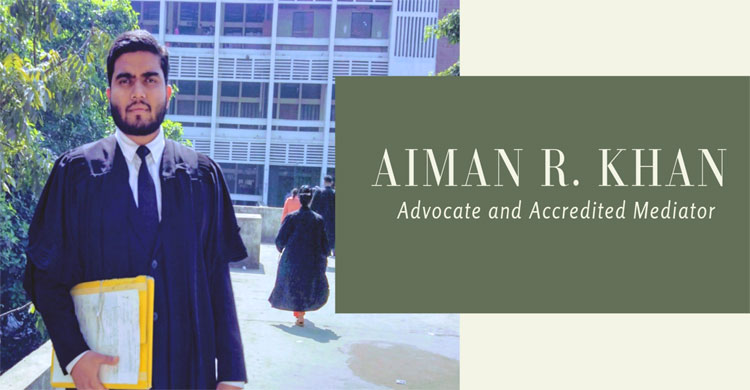Bar Council MCQ: What British law graduates must know

Aiman R. Khan:
Since you are already here, it is safe to assume that you are probably a British law graduate or just another curious mind. In either case, the information down below will be equally beneficial. Now that you have finally broken ties with all nighters and your fear of the month of May-June is over, you breathe a sigh of relief. But with the enrolment exams just round the corner, the relief will be short-lived.
Snap back to reality and you find that one opportunity going down the drain any moment. Pardon me if I burst your bubble too soon, as missing out on this golden opportunity of appearing in this exam exactly means waiting for another 2-3 years before you can finally put on the gown
The Bangladesh Bar Council administrates the 3 stage enrolment exams every 2 years to allow fresh law graduates to start practicing in the Court. Passing all three would make you am Advocate having the permission to practice anywhere in Bangladesh. But the first stage is where most drop out.
The first stage, which is the MCQ Exam, is no joke. Because in a span of one month, you probably would have to know the regulatory laws of Bangladesh. This is where the Bar Council strains out the bad from the good, testing the capabilities of an examinee.
I am not exaggerating but completing a whole book of hundreds of sections takes time. Unlike your Bachelor of Laws final year, a whole range of completely new subjects may seem to appear out of nowhere. In my case, I was told to finish studying all of them in a month. That too in Colloquial Bangla. Allow me to share my experience from those days.
The days leading to the exam was gruelling, let alone the exam itself. For this 1 hour exam, each candidate had to learn the rules of 7 established laws simultaneously. The answer script, called OMR (Optical Mark Recognition) which consists of small circles needed to be filled up for answering questions. 100 questions are specifically selected from all the 7 subjects. A candidate needs to secure 50 marks in order to pass, keeping in mind the challenge of Negative Marking.
A candidate’s overall preparation is tested when answering the questions in the short time. They have to demonstrate their retention capacity and cross hurdles. Last ten days before the exam, I left no stones unturned in shaping this dream of mine. The passion to become an advocate now ran in my veins. I realized there was no option but to push myself to the threshold. The fat guide books didn’t seem impossible anymore. I didn’t let the enthusiasm die out in me. It was all about pushing yourself to your last limit.
Entering the exam hall, I could only remember few sections from the entire syllabus. The pressure was intense as 2000 thousand others were in the same exam centre. I could feel that this will not be an easy competition. Failing would mean waiting for another 2 years before I start over again!
Answering the OMR Sheet was a challenge for me. I actually saw it for the first time in life. MCQs were supposed to be about ticking the right questions. That’s what I remember doing back in grade 4. Nevertheless, the exam started and I kept answering the questions I was confident about. Memorizing so many sections is tough as it is, but remembering them is impossible.
More than 53 questions required specific sections, orders and rules from the 7 laws. The rest of them were referred to different processes. Speaking with former candidates (now lawyers), this question pattern was difficult than previous exams. However, my limited preparation allowed me to answer just as much as I could remember.
Traditionally, the Bangladesh Bar Council releases the results the same day. This time, the amount of candidates is almost double than that of the last session. Hence, this time it will be published within 24 hours of the exam. Thousands of candidates are at the moment praying so that they are through. Upon passing, a candidate will accelerate towards the written part which is the advanced stage of this exam.
The declaration of the results would mean the list of the names eligible for the second exam. This shall decide whether a dream may be further shaped to reality or temporarily crashed. One must put all their efforts to answer the questions. Unlike written exams, it does not depend on the mood of the script checker whether you’d make it or not. It is rather very simple: if you have worked hard enough, you are bound to succeed. And if you really want it so badly, there are no reasons why you won’t.
The writer is an Advocate at Dhaka Judge Court

